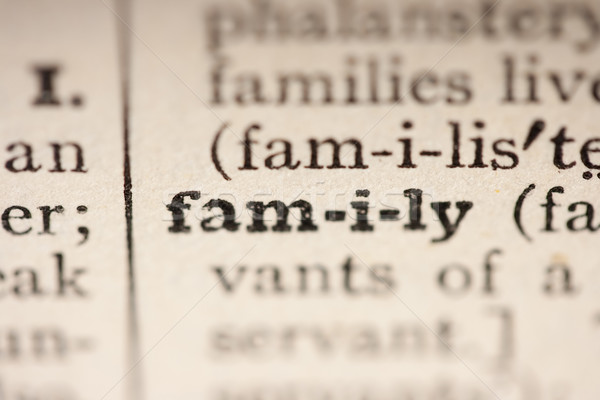How Do You Define Parent and Family?
Posted on November 23, 2016 in Family, Sexuality by Nathan Cherry
 Words have meaning. The cultural war we are engaged in at the moment seeks to redefine words and threatens to remove all meaning from these words, and the relationships these words define.
Words have meaning. The cultural war we are engaged in at the moment seeks to redefine words and threatens to remove all meaning from these words, and the relationships these words define.
Juliet once said:
“What’s in a name? That which we call a rose, by any other name would smell as sweet.”
The now famous quote penned by William Shakespeare is a concise commentary on our culture. Within our culture are those that seek to redefine words so that they lose all meaning. Words like tolerance are understood to mean one thing when, in reality, they mean something else entirely. (Consult an older version of the dictionary of you’re confused.)
One of the words under constant attack of redefinition is the word “family.” It has been understood for centuries that a family is composed of a husband/father, wife/mother, and their children. Of course we understand that there is ‘extended family” composed of grandparents, aunt’s, uncles, and cousins. But for the most part we’ve understood the family to be a very narrow description.
In order to be a parent you either have to be part of the biological process that created a child, or you have to formally adopt a child. Outside of those two methods there is not a way to be considered a parent and few would admit any legal right or parenthood to a person not taking part in one of those two methods.
Not anymore.
Now, according to a court in Massachusetts, a person that is neither a biological parent nor an adoptive parent now has the same rights as a biological parent! A recent article reports:
“The Mass. court that paved the way for same-sex marriage in the United States ruled Tuesday that an unmarried gay woman whose former girlfriend gave birth to two children through artificial insemination has the same parental rights as their biological mother. The Supreme Judicial Court, of Massachusetts, issued its decision Tuesday in a complicated case about the parental rights of a once-partnered, but unmarried, gay couple. Julie Gallagher gave birth to the children, and her former partner, Karen Partanen, has helped raise them. They are now 4 and 8. After the couple split in 2013, Partanen wanted to be declared a full legal parent. A family court judge dismissed Partanen’s request, finding that she didn’t meet the requirements under state law because she and Gallagher were not married when the children were born, and Partanen is not a biological parent. In overturning that ruling, the SJC found that a gay person may establish themselves as a child’s presumptive parent under state law, even without a biological relationship with the child.”
This signals a major shift in the way we understand what a parent and a family is. Whereas once upon a time a parent was someone that had a biological tie to a child or had legally adopted the child; now, a parent can be any person.
What are we to think about this decision by the court? Are we to abandon centuries of defining a parent and family by the close ties that unmistakably identify a person as a parent?
This is some delicate water the court is treading into because it could cause a host of legal concerns for people in all kinds of relationships. Concerns about someone seeking a legal right to a child that they have no biological tie to is a concern that should frighten all of us.
One striking thing about this decision as reported in this article is that the court said “a gay person may establish themselves as a child’s presumptive parent.” Is this a decision that is only available to gay people? Is this a special ruling given to homosexuals alone? What if a transgender person wanted to be considered the parent of a child from a previous relationship? What if a heterosexual person wanted to be given legal right to a child from a previous relationship?
What our culture is failing to see is that the definition of parent and family is not arbitrary, it’s not for no reason. The definition is carefully and wisely established to protect us. The definition that has existed for thousands of years was put in place to ensure only certain people could be a parent or be considered a family. This isn’t meant to be discriminatory or bigoted, it’s meant to create a consistency between our understanding of marriage, parent, and family. But when one definition is altered others begin to lose their meaning. That is what we are seeing here.
This doesn’t mean a close family friend can’t be casually considered to be part of our family. We use phrases such as “they’re like family,” and “he’s like a father,” or “she is like a member of the family” all the time. We don’t literally mean that such people are part of our family. We are simply giving credit to the close relationship we have with certain individuals. But those lines are carefully drawn. If a person that was “like a father” to me died, I would not assume I would be part of his will and receive an inheritance. And yet, when my own father dies I would make such an assumption. So the lines are clearly drawn even in our use of those words because we have a clear definition of parent and family.
It stands to reason that when one interconnected definition is altered, others begin to lose meaning and become subjective to people. If we cannot clearly define marriage, the definitions of parent and family will eventually lose their respective meanings. This eventuality in our culture is not coming, it’s here.
